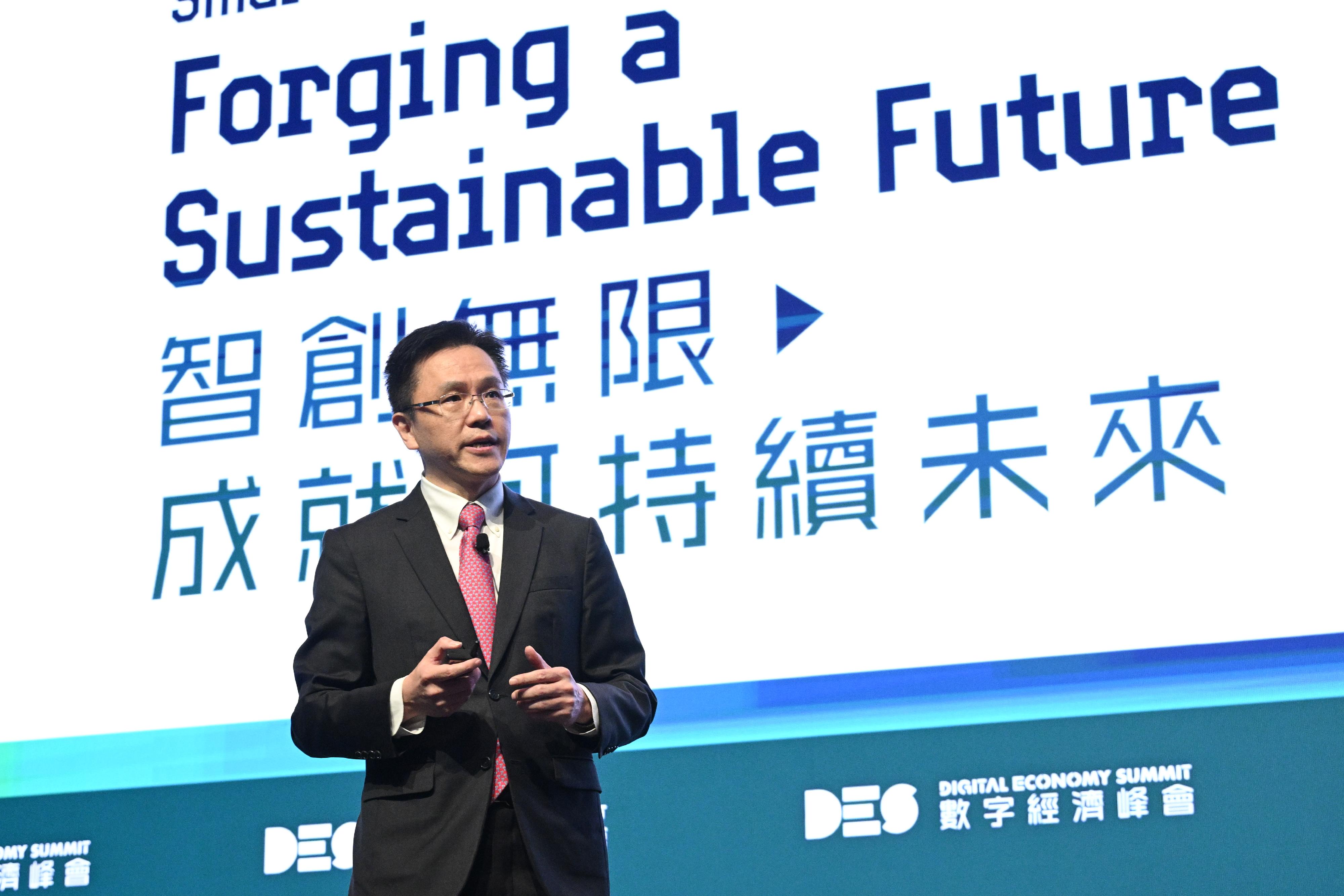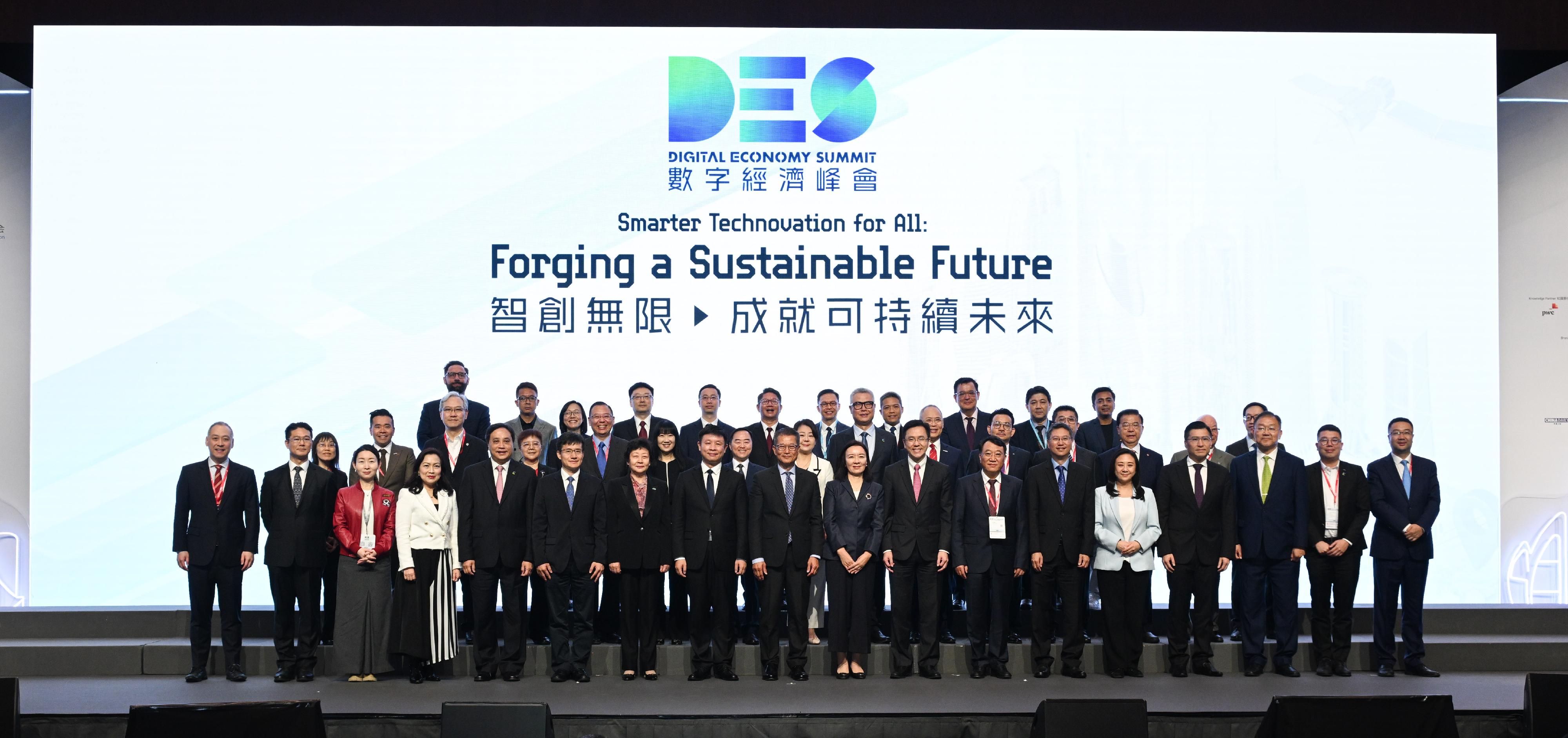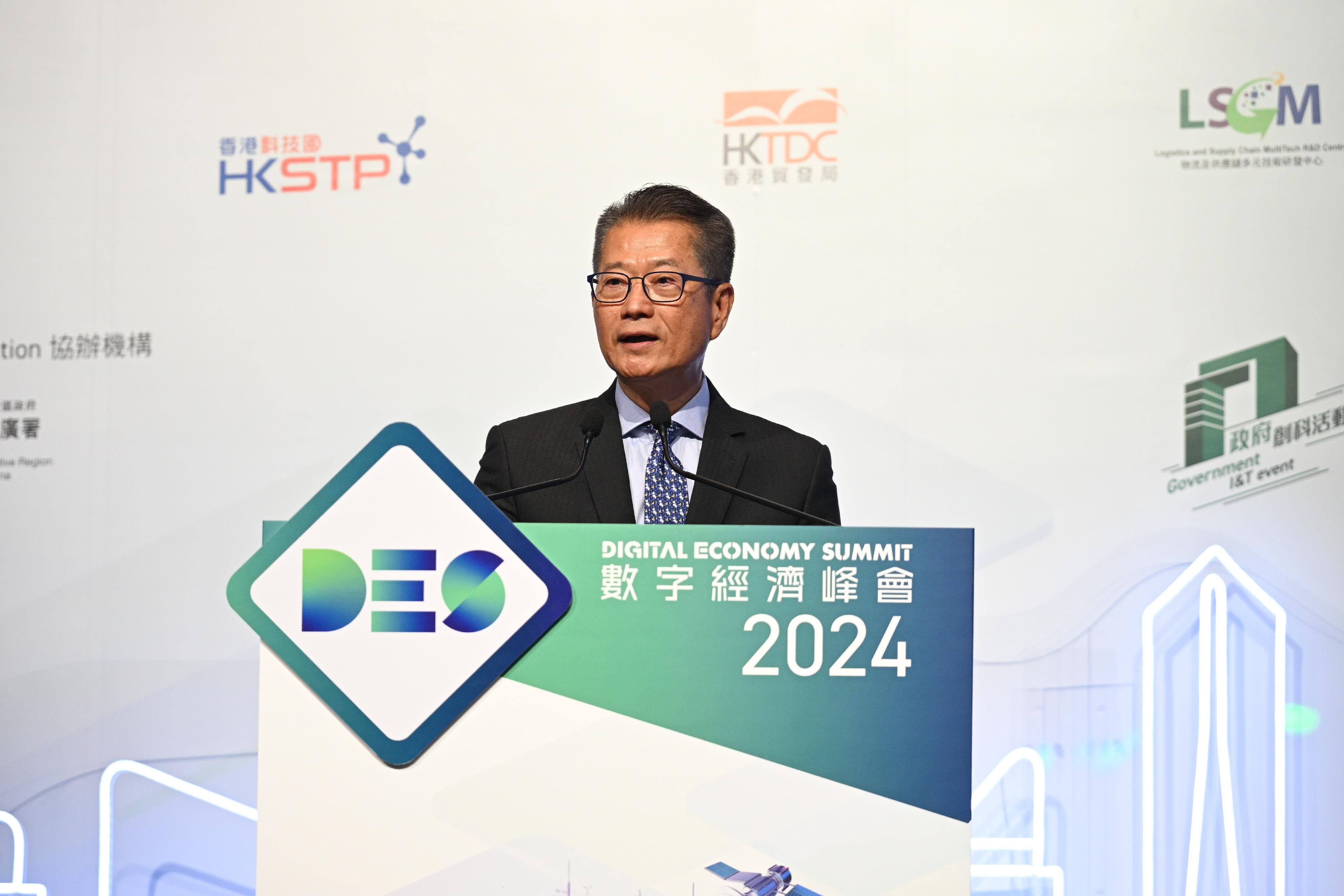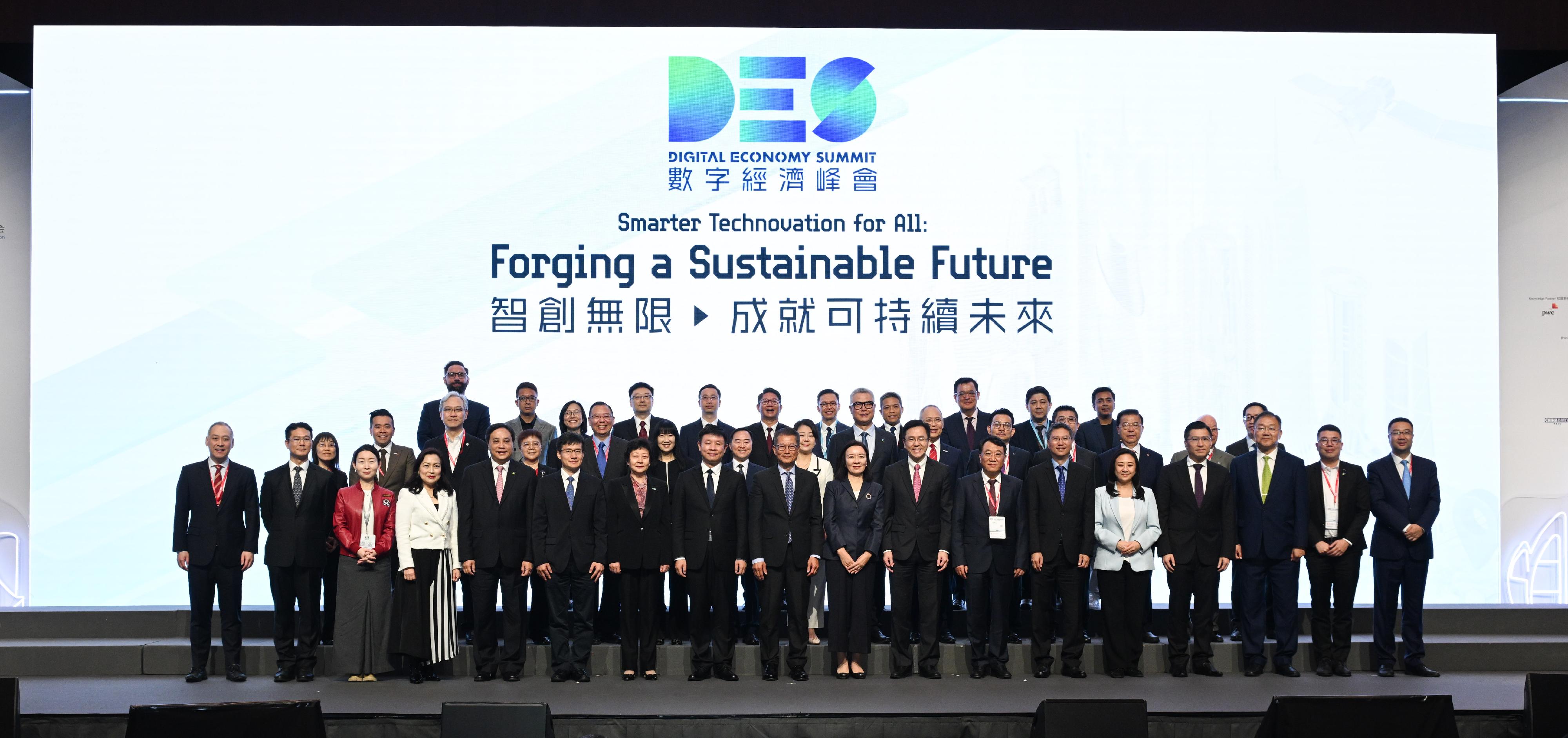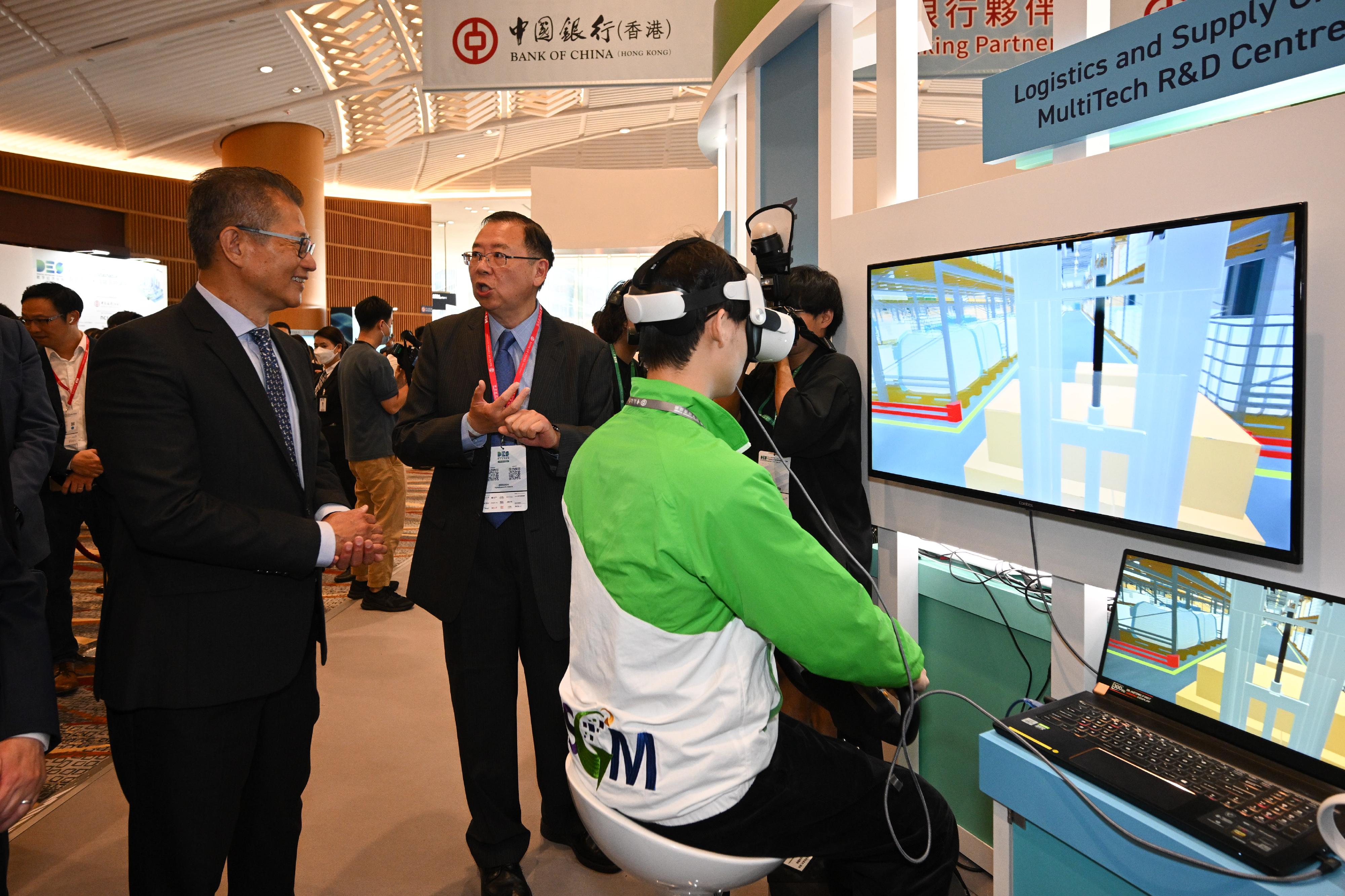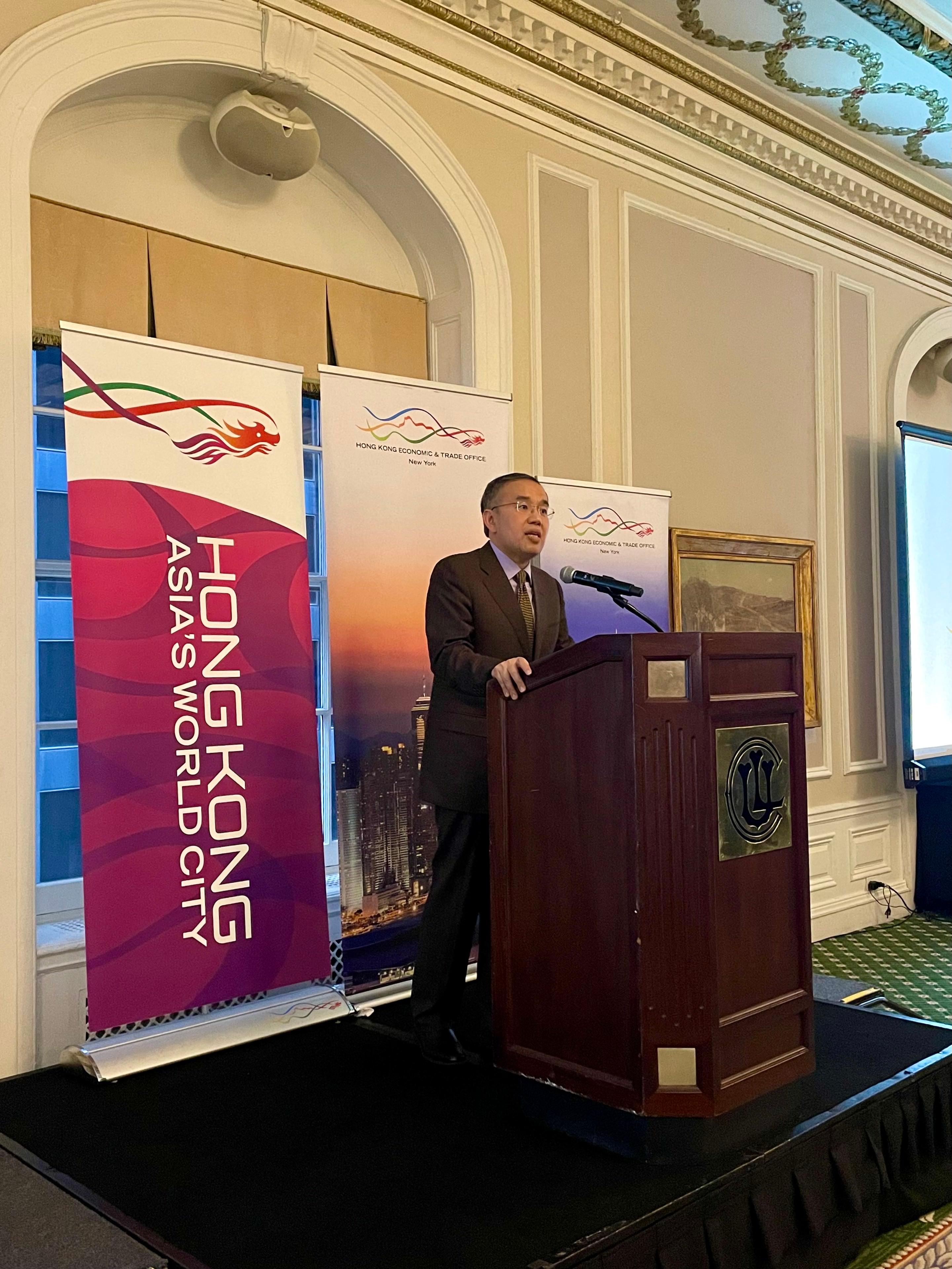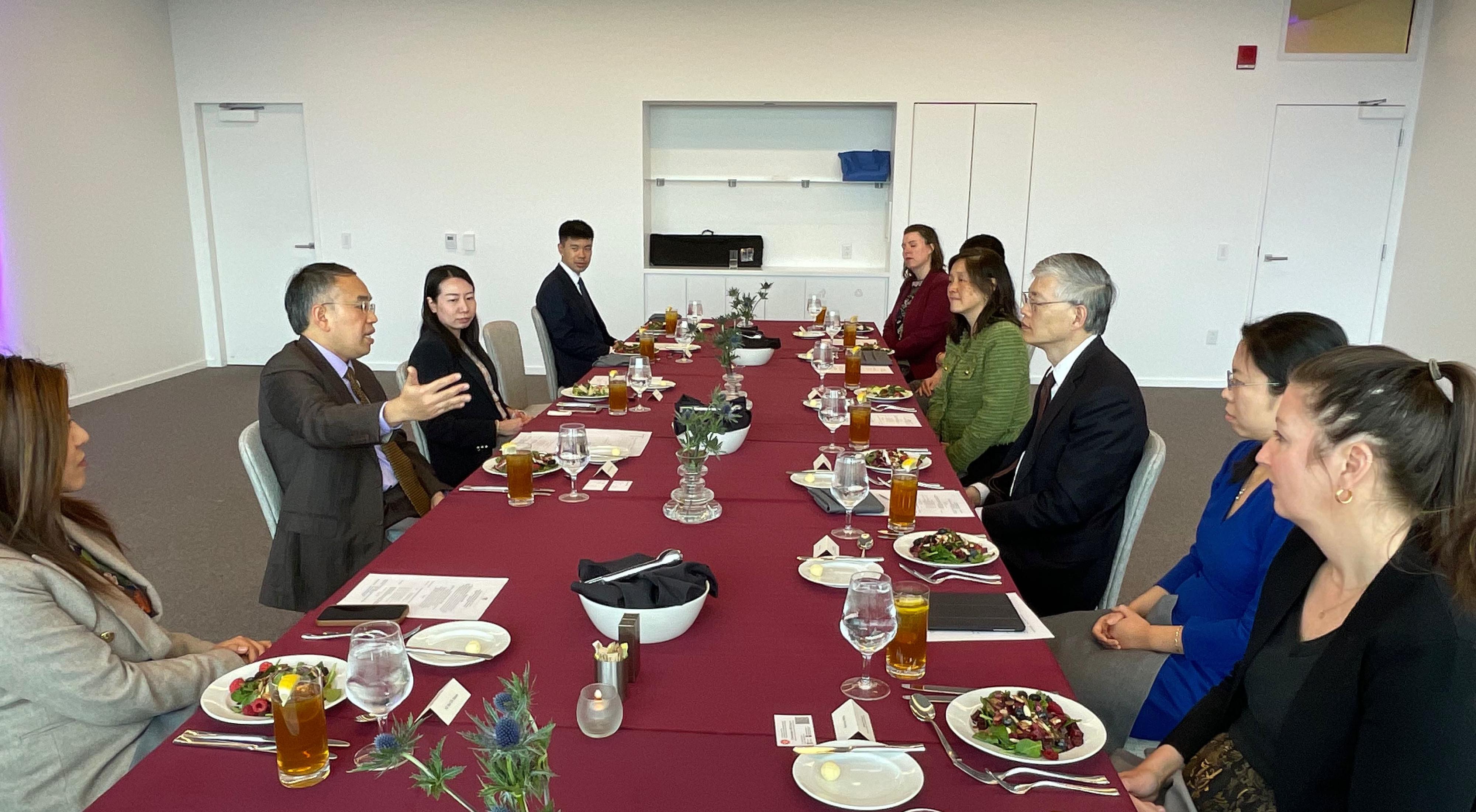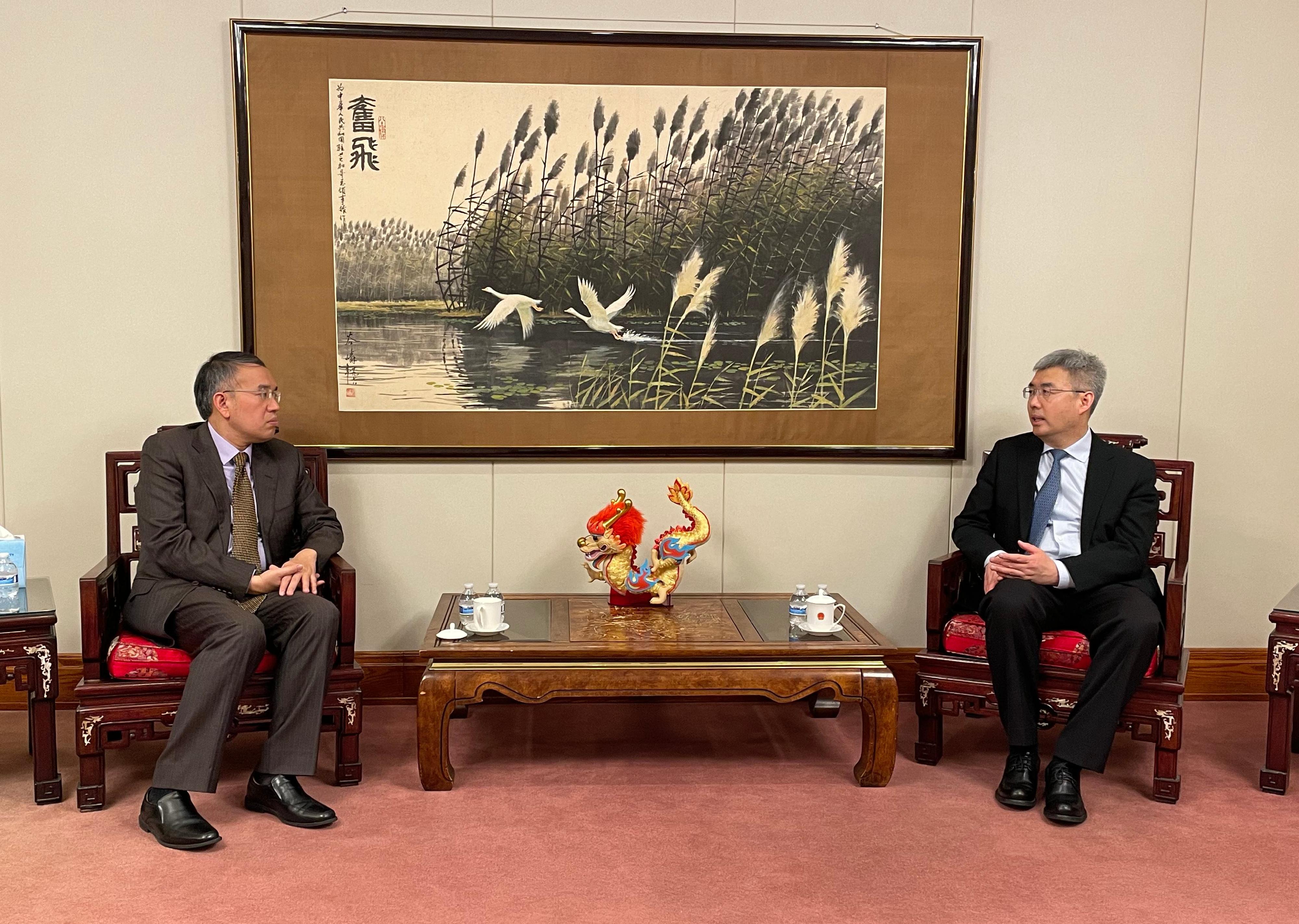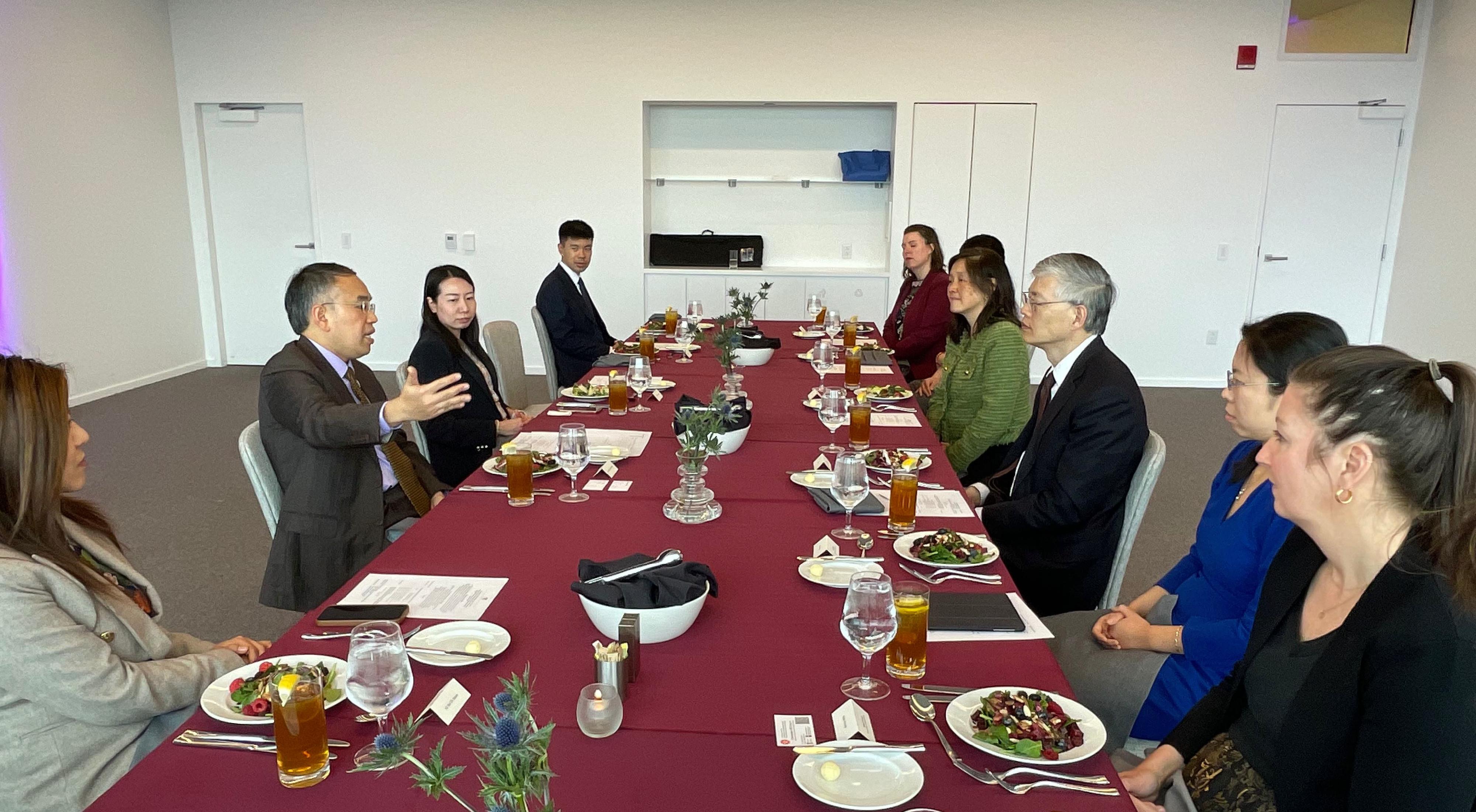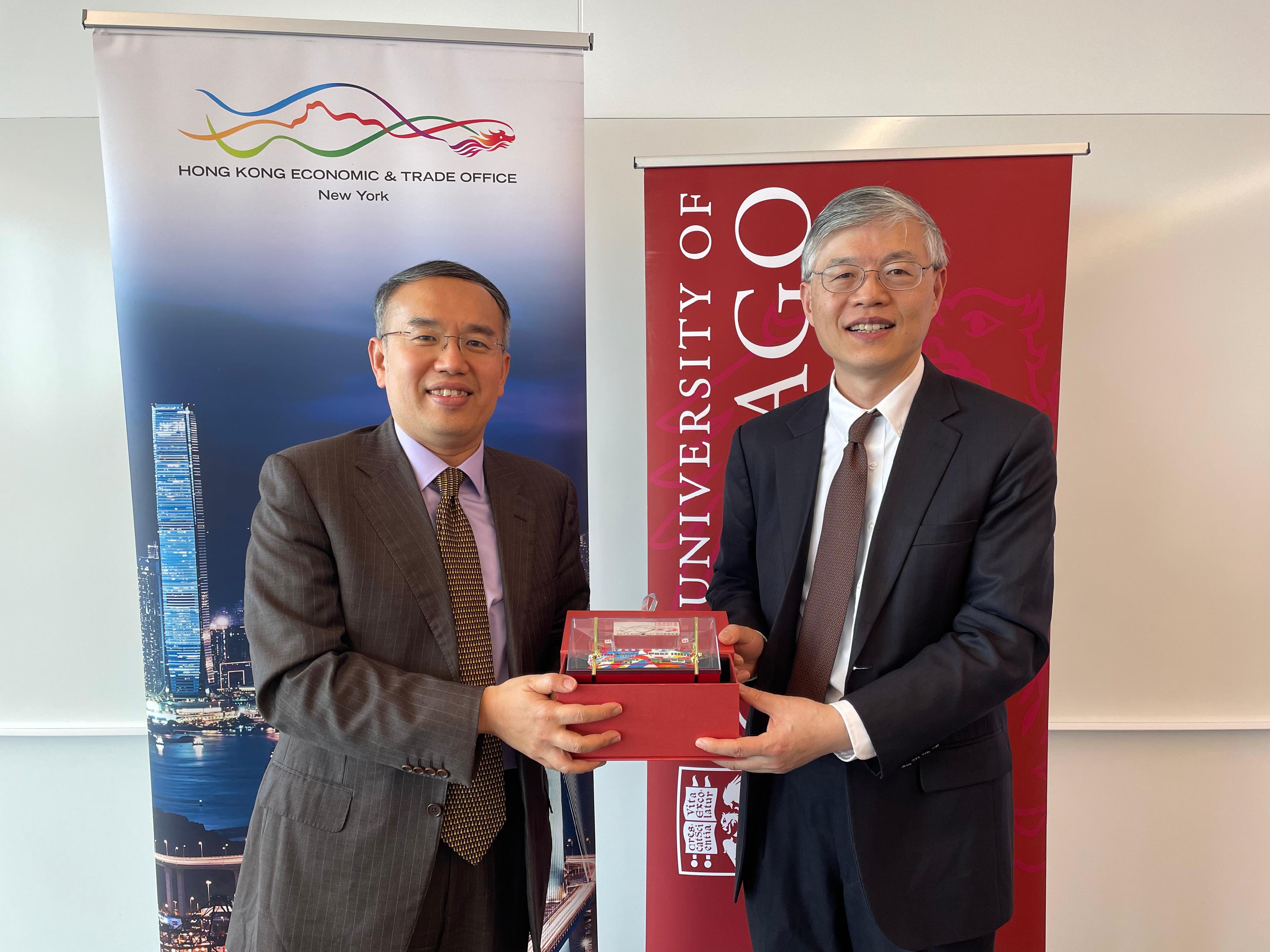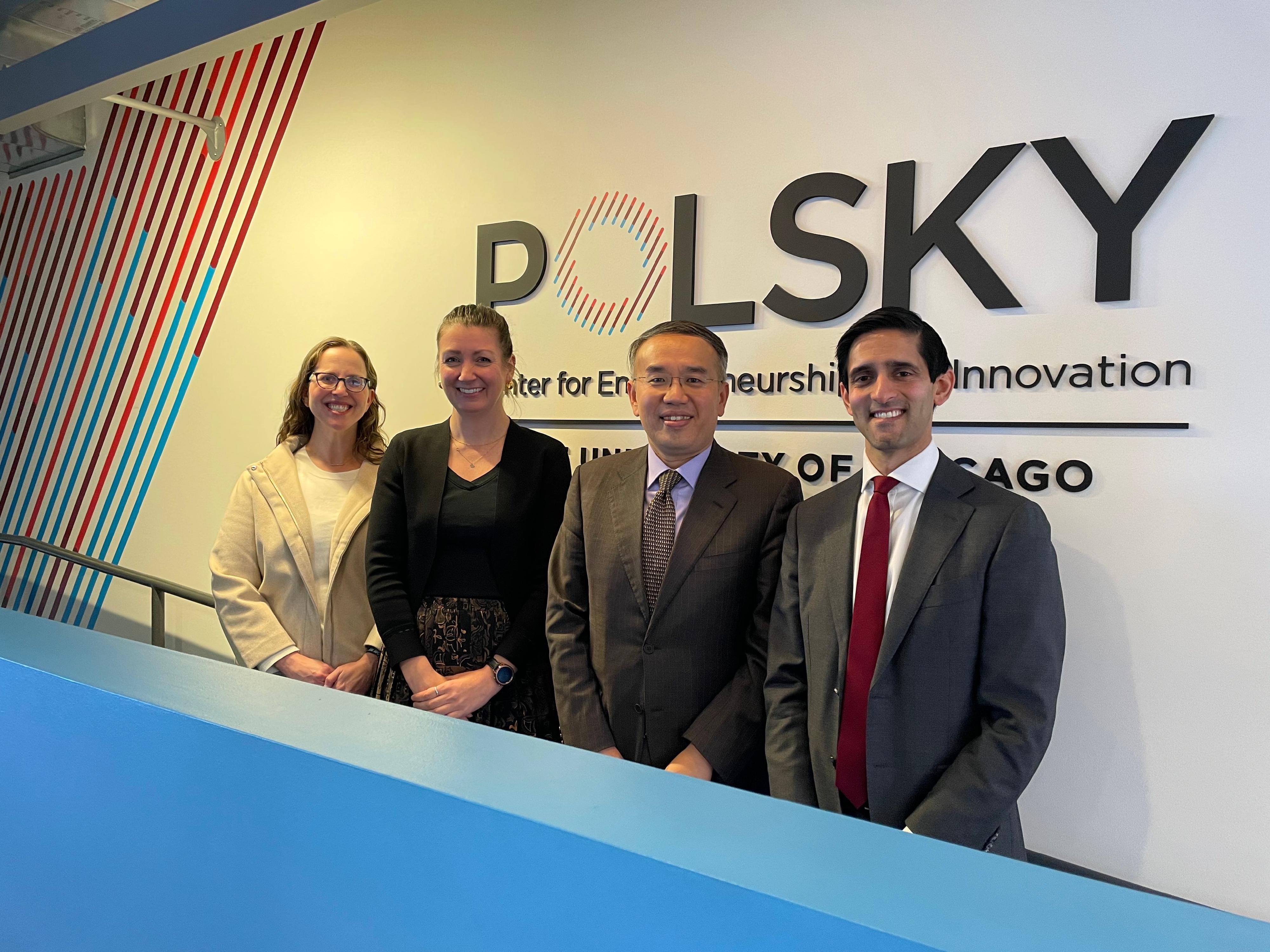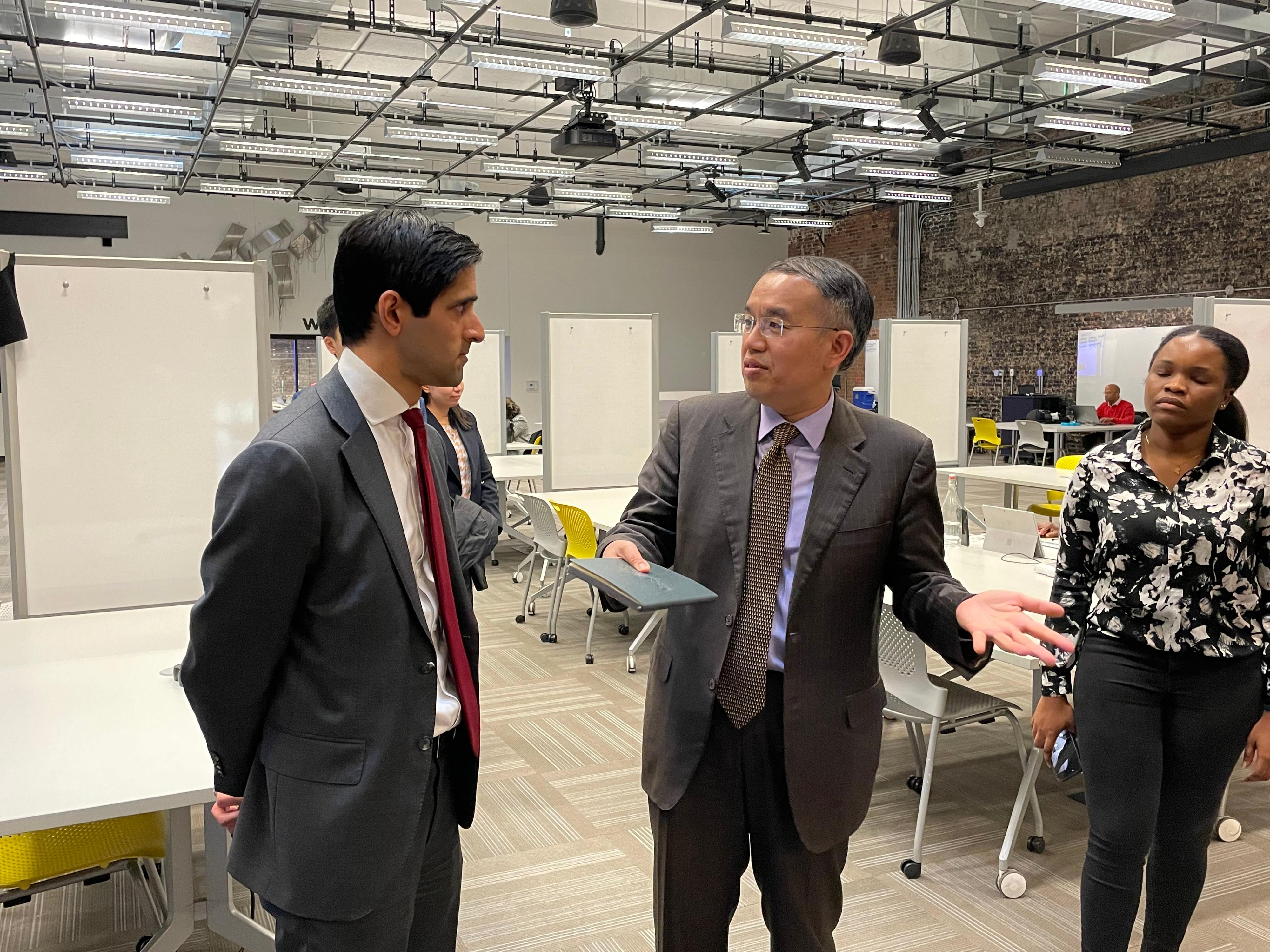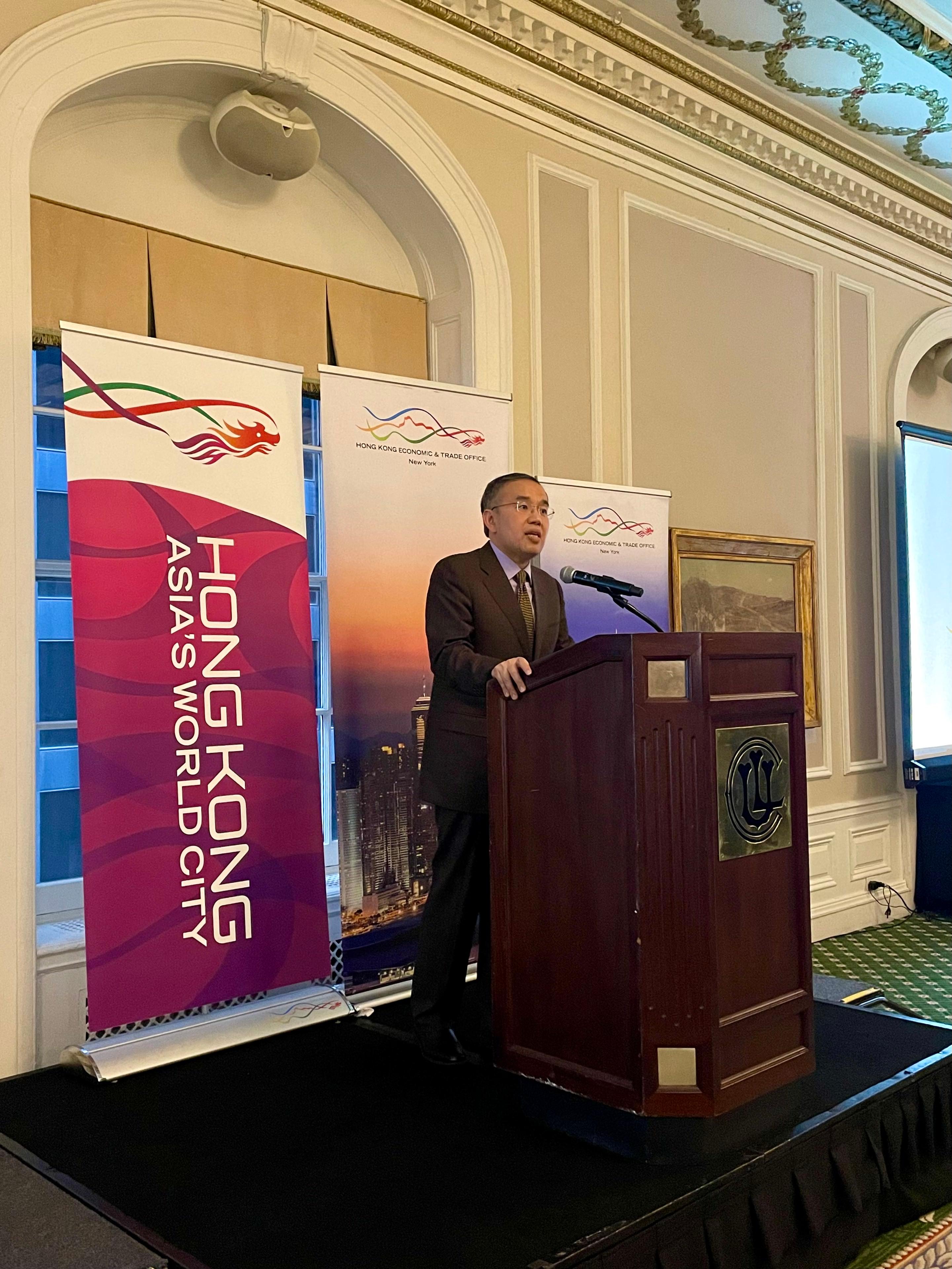Following is the speech by the Financial Secretary, Mr Paul Chan, at the Visionary Forum of the Digital Economy Summit 2024 today (April 12):
尊敬的王崧副主任 (Vice Minister of the Cyberspace Administration of China Mr Wang Song)ã€�尊敬的盧新寧副主任 (Deputy Director of the Liaison Office of the Central People’s Government in the Hong Kong Special Administrative Region Ms Lu Xinning)ã€�尊敬的王ç�†äº‹é•· (President of the China Internet Development Foundation, Ms Wang Xiujun)ã€�羅市長 (Deputy Party-secretary of the CPC Hefei Municipal Committee, Mayor of Hefei Municipal People’s Government, Mr Luo Yunfeng)ã€�å«æ�±æ•™æŽˆ (the Secretary for Innovation, Technology and Industry, Professor Sun Dong), distinguished speakers and guests, ladies and gentlemen,
Good morning. A warm welcome to Hong Kong and this year’s Digital Economy Summit, under the theme of “Smarter Technovation for All: Forging a Sustainable Future”.
This two-day gathering will bring together some 4,000 professionals from Hong Kong, the Mainland and all over the world, a perfect occasion for visionaries, industry leaders and innovators to discuss a broad spectrum of topics in the realm of the digital economy. We are here too, to network, and to explore collaboration opportunities down this long road of digital promise.
Here I would like to extend our warmest welcome to Vice Minister Mr Wang Song from the Cyberspace Administration of China, President Wang Xiujun of the China Internet Development Foundation, and Mayor Mr Luo Yunfeng. They will share respectively their valuable insights and perspectives on our country’s experience and potential in the digital economy.
Digital economy as a driver of the economy
Ladies and gentlemen, the digital economy has clearly emerged as a new driving force for global economic development. From digital payments to generative AI (artificial intelligence), data are rapidly changing how businesses operate and thrive, how cities are managed, and, ultimately, how we work, learn and live.
Our country is a leader in this respect. Latest estimates suggest that on the Mainland, the scale of the digital economy surpassed RMB50 trillion in 2023, accounting for over 40 per cent of our country’s GDP (gross domestic product). Indeed, it is an important component of “new quality productive forces” highlighted by President Xi Jinping. In the Government Work Report delivered by Premier Li Qiang at the recent “Two Sessions” in Beijing, advancing the innovative development of the digital economy is a priority task of the country.
Hong Kong charting its course
In Hong Kong, we know that in the domain of the digital economy, the landscape is complex and rapidly evolving. Competition among cities and economies in this field is keen. Hong Kong must move fast to stay ahead of the curve.
That is why in my Budget two years ago, we decided to establish the Digital Economy Development Committee, which I chair, comprising the relevant government officials, industry experts and academics. It advises the Government on what Hong Kong should do to advance and prevail in the era of the digital economy.
After rounds of detailed studies and discussion, the Committee has put forward a set of 12 core recommendations. Some of them are already being implemented. Some are in the pipeline.
I am pleased to announce that these recommendations have just been made public today.
In short, they fall under five major pillars.
First, strengthening the overall digital policy of Hong Kong. Core to this is the establishment of the Digital Policy Office this year. The Office will assume overall responsibility on formulating and implementing effective digital policies. It is its mandate to drive the development of the digital economy and smart city.
Second, strengthening our digital infrastructure. That includes enhancing the use and coverage of 5G networks, encouraging the building of high-performance computing and data centres, further promoting electronic payments, rolling out the business version of “iAM Smart”, and more.
An increasingly important aspect of digital infrastructure is to provide computing power to support the development of artificial intelligence. Hong Kong is now building a supercomputing centre that will serve the computing power needs of enterprises, academic and research institutions. The first phase of its service will be rolled out as soon as within this year.
Third, facilitating local and cross-boundary data flow. On the local front, we will work to encourage both the public and private sectors to open up more data. And we will extend the coverage of the Commercial Data Interchange, or CDI, run by the Hong Kong Monetary Authority. The CDI helps enterprises to obtain loans more conveniently through sharing their data with the banks on a consent basis. At the end of last year, it had facilitated more than 13,000 loan applications with a total loan amount of around HK$12 billion.
On cross-boundary data flow, this is an area where Hong Kong enjoys unique advantages under the “one country, two systems” arrangement. Hong Kong is where data from the Mainland and around the world would converge.
As an international city, we have long enjoyed unfettered access to international data. Now, we are making good progress in cross-boundary flow of data with the Mainland. In June last year, we signed an MOU (memorandum of understanding) with the Cyberspace Administration of China on jointly promoting cross-boundary data flow in the Greater Bay Area. In December, we launched a pilot scheme to facilitate the flow of personal information within the Greater Bay Area for the banking, credit referencing and healthcare sectors. The measure will be extended to other sectors after reviewing the outcome of the pilot scheme.
These and other upcoming endeavours will drive more public and private cross-boundary services, and benefit our businesses and citizens. They will also encourage more research and development activities in AI and life and health technologies, here in Hong Kong.
Looking ahead, we see clear potential for international data trading to become a new and thriving industry in the city. With that in mind, we have commissioned an expert group to study how best to develop a robust data-trading system in Hong Kong.
Fourth, expediting digital transformation. In this respect, the ability for enterprises, especially SMEs (small and medium enterprises), to adapt to and engage in digital transformation is highly important. To this end, we will support and incentivise SMEs in adopting electronic options such as electronic payments, provide them with necessary information and skills training, and more.
Just at the end of March, Cyberport has rolled out a pilot subsidy scheme for SMEs in the F&B (food and beverage) sector to purchase off-the-shelf digital solutions covering digital payment solutions, online promotion and customer management. The retail industry will be the next batch to benefit.
Finally, developing a sustainable talent strategy. We will continue to attract, retain and cultivate digital talent through enhancing education and training, as well as attracting talent and tech enterprises from outside Hong Kong. And we will also work to enhance digital literacy and competency for the whole community.
Concluding remarks
Ladies and gentlemen, I have highlighted just some recent developments of Hong Kong in the digital economy. And we know we’re just getting started. I do look forward to the many inspiring ideas that will help us drive the progress of digital transformation further and faster.
My sincere thanks to the Cyberspace Administration of China and the China Internet Development Foundation for their support to this Summit over the years. I also thank our organisers, the Innovation, Technology and Industry Bureau, the Office of the Government Chief Information Officer, and Hong Kong Cyberport.
I wish you a rewarding Summit and the best of health and digital business in the coming years. Thank you.
read more


